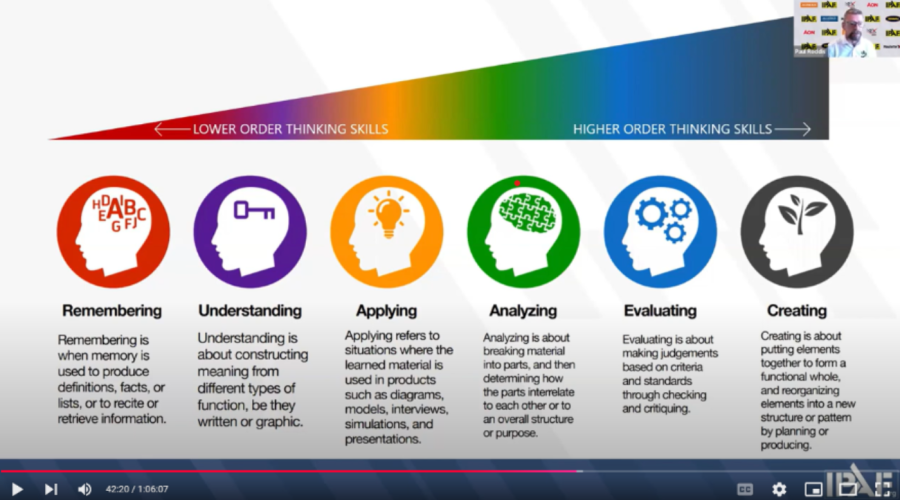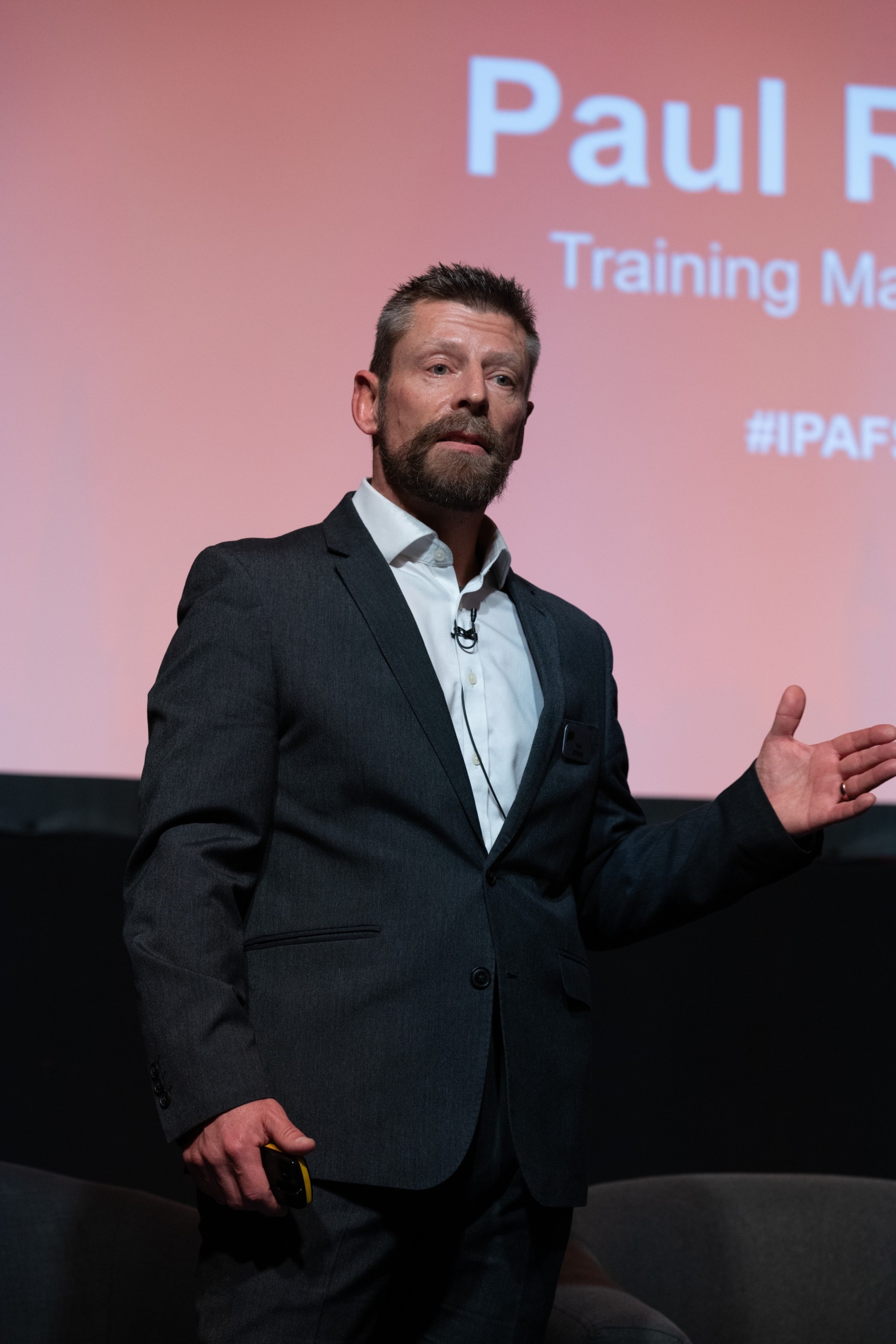Recap: IPAF Safety Professionals Webinar – The Importance of Planning for Safe Operations

The annual IPAF Safety Professionals Webinar, led by Brian Parker, Head of Safety and Technical, provided a platform to advance safety standards within the powered access industry. Held on Zoom, the webinar focused on education, collaboration, and proactive measures to reduce workplace accidents.
Opening and Objectives
Brian Parker opened the session by thanking attendees for their dedication to safety whilst managing demanding roles. He explained the webinar’s purpose: keeping IPAF safety professionals updated on the latest developments and encouraging an industry-wide commitment to safety. To ensure engagement, the session included interactive polls throughout.
Attendees were invited to contact safety@ipaf.org to discuss any pressing safety issues.
Resources and Practical Guidance
Mike Ashton, International Safety and Technical Advisor, outlined the wide range of resources available on IPAF’s website, including technical guidance documents, toolbox talks, and Andy Access posters.
These tools are designed to promote and enable the safe, effective use of powered access equipment worldwide. Ashton encouraged participants to download and display these free resources prominently at job sites to reinforce safety standards.
Key topics included pedestrian control of MEWPs (Mobile Elevating Work Platforms) and service, inspection and maintenance of MEWPS – both of which are legislation neutral. These resources support safety professionals across various regions, regardless of specific local regulations.
Data Insights and Reporting
The webinar highlighted trends in fatal and major incidents involving MEWPs, MCWPs (Mast Climbing Work Platforms), and CH (Construction Hoists) for 2023. These insights, detailed in IPAF’s Global Safety Report, stress the importance of data-driven safety strategies.
Attendees were encouraged to submit incident data via IPAF’s accident reporting portal or the ePAL app, with submissions remaining anonymous. Parker noted that such contributions allow for tailored training and guidance, helping to prevent recurring accidents.

Planning for Safe Operations
Brian Parker then highlighted the critical role of planning as the foundation for safe powered access operations, while revisiting IPAF’s global safety campaign, “Crushing Can Kill”. He explained that thorough and effective planning is essential for mitigating risks and ensuring safety when using Mobile Elevating Work Platforms (MEWPs) and similar equipment. Poor planning, he emphasised, is one of the leading causes of workplace accidents, but a structured approach can significantly enhance safety outcomes.
IPAF’s Head of Safety and Technical outlined a ten-stage planning process to guide safety professionals in preparing and executing powered access operations:
The 10 Stages of Planning:
- Identify the Task: Understand the work to be completed and its specific requirements.
- Select Suitable MEWP: Choose the most appropriate equipment for the job.
- Identify Hazards Associated with the Proposed Task(s): Evaluate potential risks, including those posed by the environment and equipment.
- Assess the Risks: Determine the likelihood and severity of hazards.
- Evaluate Control Measures: Consider measures to mitigate the risks effectively.
- Develop the Method to Be Used: Plan the detailed steps of how the work will be carried out.
- Record the Planning in a Method Statement / Safe System of Work (SSoW): Document the planning process for clarity and accountability.
- Communicate the Plan: Ensure all involved parties understand the plan and their responsibilities.
- Review the Plan, Considering Any Changes in Circumstances: Continuously monitor and adapt to any new developments.
- Review and Amend as Necessary: Update the plan based on reviews or as circumstances change.
He further stressed that safety planning must be an ongoing process, requiring regular updates and adjustments. He also noted common pitfalls, such as neglecting to involve key stakeholders or overlooking site-specific risks. Effective planning, he explained, not only reduces risks but also improves operational efficiency by minimising delays and ensuring preparedness.
Training: The Foundation of Safety
Paul Roddis, IPAF Training Manager, delivered an in-depth session on the critical role of training in powered access operations. He emphasised that effective training goes beyond compliance, providing individuals with the skills and knowledge to enhance safety and efficiency in their roles. Roddis highlighted the importance of tailoring learning to reflect real-world challenges faced by managers, planners, operators, and engineers.
To ensure comprehensive skill development, Roddis introduced IPAF’s structured range of training courses tailored to specific roles:
Managing and Planning:
- MEWPs for Managers
- Site Assessment
- Harness Awareness
- MEWP Demonstrator
- MCWPs & CHs for Managers
Operating and Using:
- MEWP Operator and Operator Renewal
- MEWP Advanced Operator PAL+
- MEWP PAV Operator
- Harness Awareness and User
- MCWP Operator
- Mobile MCWP Operator
- CH Operator
Technical and Engineering:
- MEWP Competent Assessed Person (CAP)
- MEWP Pre-Delivery Inspection (PDI)
- MEWP Demonstrator
- Harness Inspector
IPAF’s Training Manager also explained a cognitive hierarchy diagram that outlines the progression of learning from basic knowledge to advanced problem-solving and innovation. This hierarchy helps operators develop the ability to apply their knowledge effectively in real-world situations. The six levels of learning include:
- Remembering: Recalling facts, definitions, or procedures that form the foundation of knowledge.
- Understanding: Interpreting information and constructing meaning from texts, diagrams, or protocols.
- Applying: Using acquired knowledge in practical scenarios, such as implementing safety guidelines on-site.
- Analysing: Breaking down complex systems into parts to understand how they interact or contribute to overall safety.
- Evaluating: Making judgments or decisions based on criteria, such as assessing risks or checking compliance.
- Creating: Combining elements to develop new structures, systems, or procedures that enhance safety and efficiency.
Roddis also referenced a significant milestone: Over 208,000 people were trained by IPAF in 2023, with expectations for 2024 to surpass this figure by a considerable margin. IPAF’s training courses are designed to guide individuals through this learning progression, helping them move from basic knowledge acquisition to advanced problem-solving and innovative thinking. This structured approach ensures that operators not only gain theoretical knowledge but can also apply it effectively in their roles, reducing workplace risks and enhancing safety across powered access operations.

The webinar reinforced the need for consistent efforts, collaborative approaches, and adherence to good practices to improve safety standards within the powered access sector. With proper implementation of these strategies, the industry can reduce risks and achieve safer work environments. Watch the webinar below:
For more upcoming IPAF webinars and events, visit: https://www.ipaf.org/en/upcoming-events
